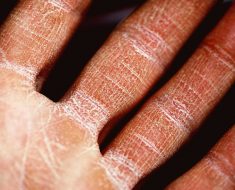
A third of people in the UK have experienced more pain during lockdown, according to a new study.
The research, conducted by Nurofen, found that since we have been spending more time at home, more people have been experiencing backaches (36%), headaches (34%), joint pains (27%), neck aches (26%) and muscle aches (24%).
The researchers suggest that is caused by an unexpected pain paradox associated with the perceived ‘benefits’ that come with lockdown living.
But what is causing these chronic aches and pains? At the top of the list of triggers is stress – which was the main cause for 50% of people surveyed. Which comes as no surprise, because living through a global pandemic is pretty stressful to say the least.
However a number of lockdown ‘benefits’ were also listed as surprising triggers of pain. These included having more time for:
- Watching more TV and films (39%)
- Hobbies (like DIY and gardening) (21%)
- Looking after children (12%)
- Exercise and fitness (16%)
Whilst lockdown enabled people to spend more time at home with their families, this may have increased pain suffering as 12% of respondents attributed new discomfort to increased childcare hours.
Younger people (aged 25-44) said they experienced more back pains and headaches, in comparison to those over 45. This age group were also more likely to claim that their increased pain was caused by a poor work from home set up and more time looking after their children; perhaps as a result of juggling work with home schooling.
On top of this, 50% of all respondents claimed stress was a key factor in their increased pain, which might have been a reflection of the lockdown climate.
DIY and gardening, which may have been a result of new found leisure time was cited by more than a fifth (21%) as causing more acute pain.
39% believe the increased time spent in front of TVs, computers or laptops has been causing their pain. In fact, more screen time may also have had other consequences, with 35% believing changing sleep patterns and 33% thought less physical activity also worsened their pain.
Some people used the new time gained to improve their health and fitness during lockdown, but this may have led to further pain as 16% of respondents felt exercise had increased their aches.
The survey also found that 60% of people want more advice on how to deal with pain, and 39% have not relied on any sources of information to help manage their pain – turning to GPs and pharmacists for help has decreased.
To avoid making lockdown more painful and allow people to enjoy their pastimes, The researchers are now urging people to follow NHS advice and have developed the ‘Three P’s of Pain Management’ to help people take action when pain strikes.
Proactivity
Be proactive, don’t let acute pain persist
- Identify pain triggers and address them.
- Be conscious of your pain and take action.
Pain relief
Take positive steps to find the solution that works for you
- Take gentle exercise, breathe right, relax and stretch.
- The NHS recommends over-the-counter medications such as ibuprofen and paracetamol to treat a range of aches, pains and inflammation.
- If pain persists, seek advice from a healthcare professional.
Prevention
Help to avoid future pain occurring
- Understand your pain and how to manage it.
‘Pain can affect our mood, relationships, family and work life so it’s important that we take steps to deal with it quickly and effectively,’ says Dr Sarah Jarvis MBE.
‘It’s clear that adjusting to new ways of living and working has heightened our acute pains, or even caused new ones. It is vital that people deal with their pain early to avoid suffering unnecessarily and rely on trusted sources, such as the NHS or a pharmacist to understand the best solution for their individual needs.’
Do you have a story to share? We want to hear from you.
Get in touch: [email protected].
Source: Read Full Article





